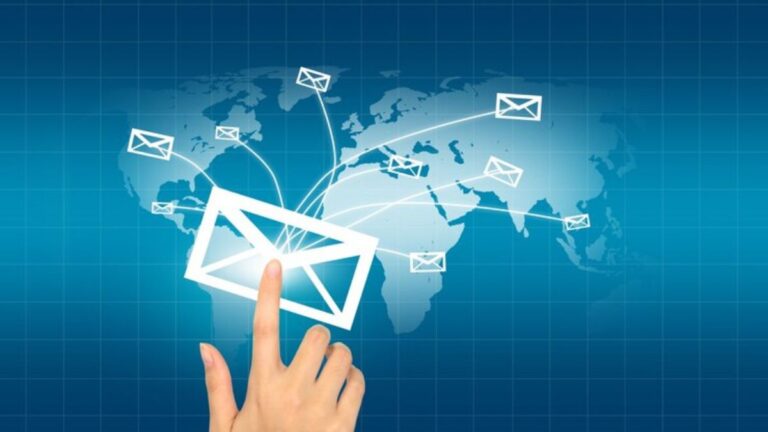Introduction to Personalized Email Marketing
In the crowded digital marketing landscape, standing out is more crucial than ever. With consumers receiving dozens of generic emails on average, personalization emerges as a key differentiator, allowing brands to cut through the noise effectively.
Beyond just capturing attention, personalized email marketing facilitates forming deeper connections with the audience. Businesses can use data insights to craft messages that resonate personally with each recipient, reflecting their interests and preferences. This tailored strategy is not just about increasing open rates; it’s about fostering lasting relationships that can lead to loyalty and advocacy, thus serving as a catalyst for growth in a highly competitive environment.
Critical Benefits of Personalization in Email Campaigns
Personalization in email campaigns heralds numerous benefits that translate into significant business gains. At the forefront is enhanced customer engagement, driven by delivering relevant content that aligns with the recipient’s needs and interests. Traditional email marketing has evolved, giving rise to targeted email marketing that speaks directly to the individual recipient rather than a one-size-fits-all approach. This increases open rates as emails are more likely to capture attention when they offer something of personal value to the reader.
Moreover, personalized campaigns typically achieve higher conversion rates since they address the recipient’s specific pain points or desires, prompting action. This heightened engagement leads to improved customer satisfaction, as messages feel less intrusive and more like they directly serve the recipient’s needs, promoting brand affection over time.
Another significant benefit lies in precision tracking and measurement capabilities, enabling marketers to fine-tune future strategies. By analyzing customer behaviors and engagement patterns, businesses can gain insights into what resonates with different segments, laying the groundwork for increasingly successful campaigns that cater to evolving consumer expectations.
Strategies for Effective Personalization
Creating effective personalization within email marketing demands thoughtful strategies to maximize its potential. One fundamental approach is audience segmentation, which involves dividing the audience into distinct groups based on shared characteristics, such as demographics or past behaviors. Recognizing these traits allows marketers to craft messages that appeal to each subgroup’s unique interests.
Dynamic content is a powerful complement to segmentation. This involves tailoring email components to align with user preferences, ensuring an individualized experience. Such content might include personalized recommendations or specific call-to-actions aligned with previous interactions, enhancing the likelihood of positive engagement.
Leveraging data analytics is equally critical. It is a cornerstone for understanding past behaviors and predicting future actions. This insight ensures that email content remains targeted and timely, effectively maintaining the relevance and efficacy of campaigns across diverse audience segments.
Data and Privacy: Balancing Personalization with Trust
While the advantages of personalization are clear, it also raises significant concerns surrounding data privacy. Maintaining a balance between personalization and privacy is paramount in an era where consumers are wary of data misuse. Compliance with regulations like GDPR is essential, not only to avoid legal repercussions but also to foster trust.
Marketers must implement policies ensuring transparent and secure data collection processes, granting consumers autonomy over their personal information. This transparency builds trust, reassuring customers that their data is used responsibly and strengthening their loyalty and openness to receiving personalized content.
Real-Life Examples of Successful Email Personalization
Numerous companies across industries have harnessed the power of email personalization to drive remarkable results. For instance, e-commerce giants frequently use personalized product recommendations informed by past purchases and browsing data, yielding substantial returns through repeat purchases. Such practices boost sales and enhance customer satisfaction by suggesting items that align closely with consumer preferences.
Personalized offers based on previous destinations or customer interests have proven beneficial in the travel industry, encouraging consumers to book repeat trips. These examples highlight the broad applicability and profound impact that personalized strategies can have, underscoring the importance of a thoughtful approach to execution.
Tools and Technologies Enhancing Personalization
The emergence of sophisticated tools and technologies has significantly enhanced personalization efforts, empowering marketers to automate and optimize campaigns. Instruments like A/B testing offer insights into consumer preferences, enabling the refinement of email content for maximum impact. Additionally, AI-driven analytics have revolutionized the scope of personalization, providing deep insights into consumer behaviors and facilitating highly targeted campaigns.
A Business Insider article highlights AI’s transformative power, noting how AI technologies drive efficiency and precision in marketing operations. By harnessing these advancements, businesses can ensure their personalization efforts are scalable and sustainable, delivering enhanced relevancy and customer satisfaction.
Challenges in Implementing Personalized Email Marketing
Despite myriad benefits, executing personalized email marketing has its challenges. A key hurdle is the effective management and integration of data, necessitating systems capable of seamlessly processing vast amounts of information. Furthermore, developing personalized content that genuinely resonates with individual segments requires time and creative investment, posing another substantial challenge.
To navigate these complexities, businesses should prioritize acquiring robust CRM systems and data management tools to support scalable personalization. Investing in these technologies facilitates smoother operations and ensures personalized strategies remain agile and responsive to real-time consumer needs.
The Future of Personalized Email Marketing
Looking ahead, the future of personalized email marketing appears promising, driven by ongoing technological advancements. Emerging trends point towards hyper-personalization, characterized by unprecedented data insights and real-time customization capabilities. As AI and machine learning evolve, marketers will gain an even deeper understanding of consumer behavior, paving the way for more precisely targeted messaging.
In the coming years, businesses will likely integrate personalization more profoundly into their marketing operations, recognizing its potential to drive engagement and foster competitive advantage. By investing thoughtfully in personalized strategies now, companies can set a solid foundation for future success in an increasingly dynamic digital marketing sphere.
